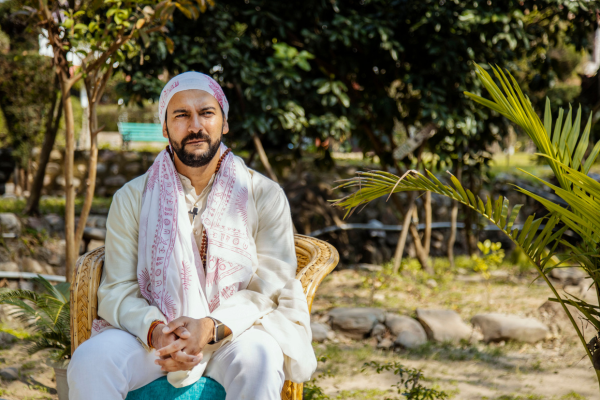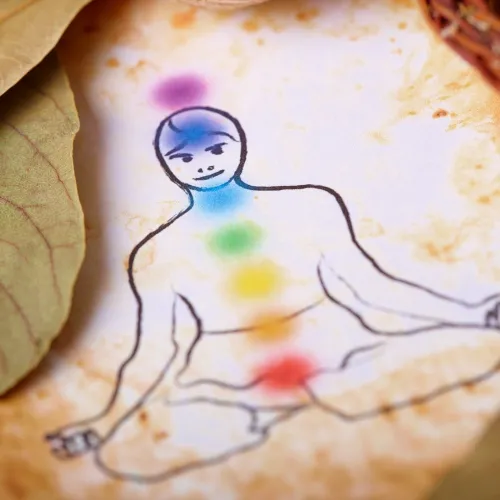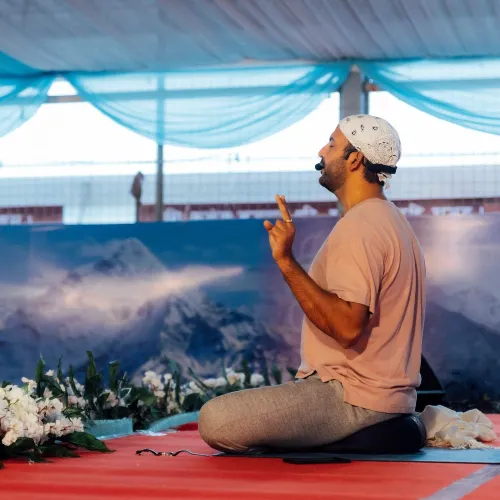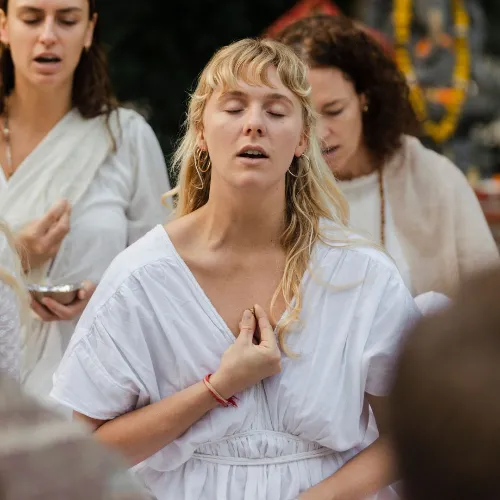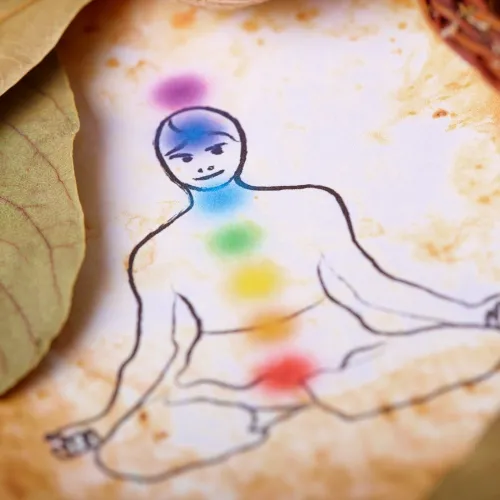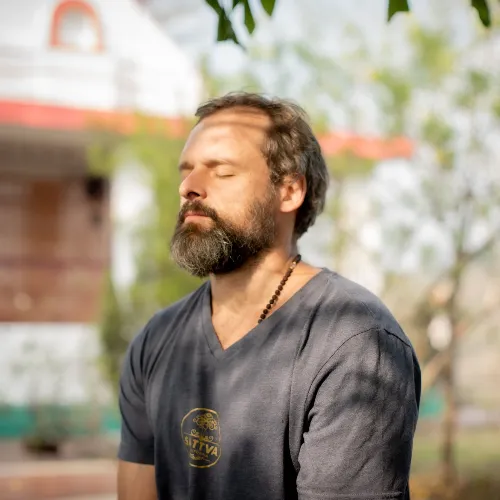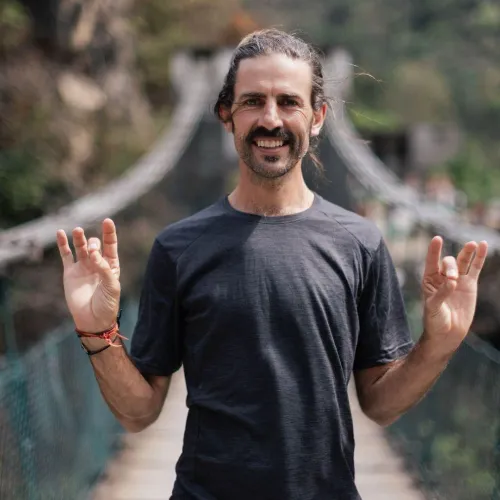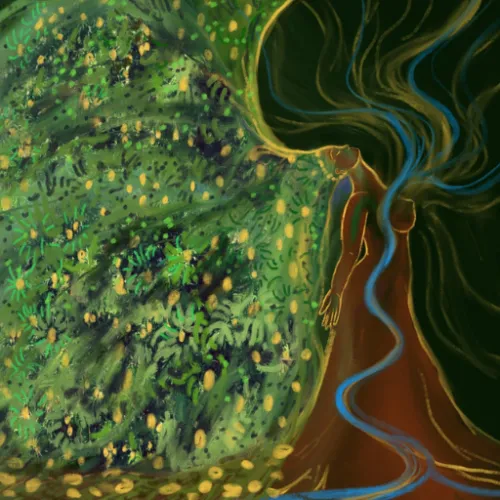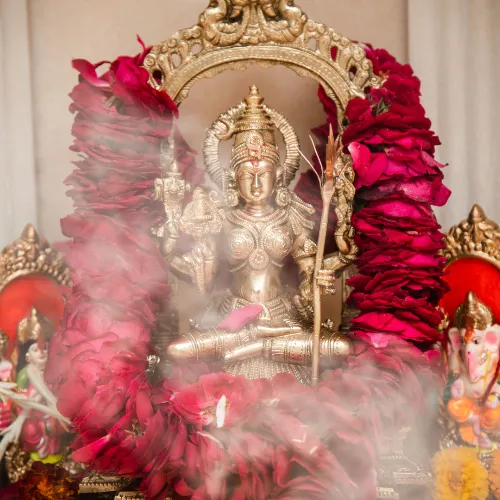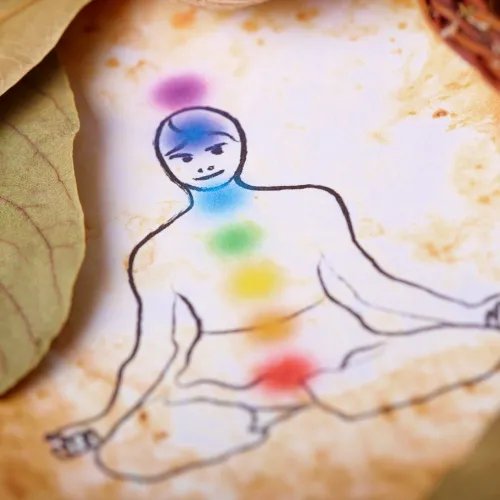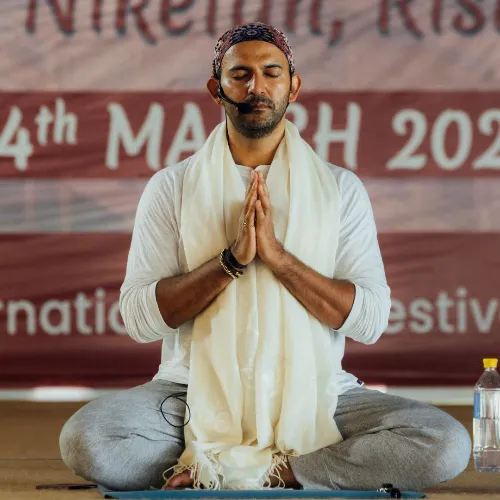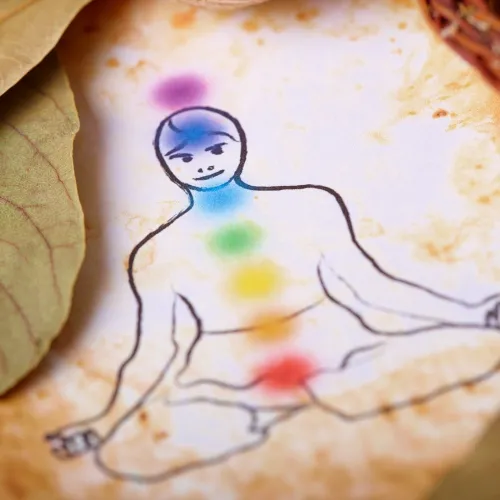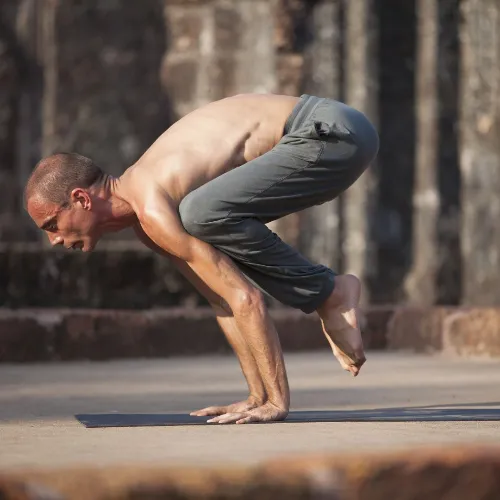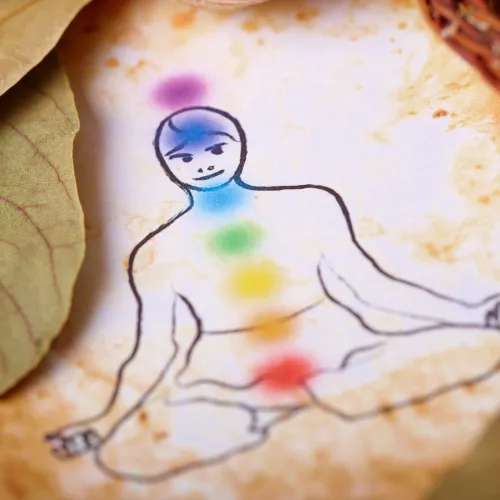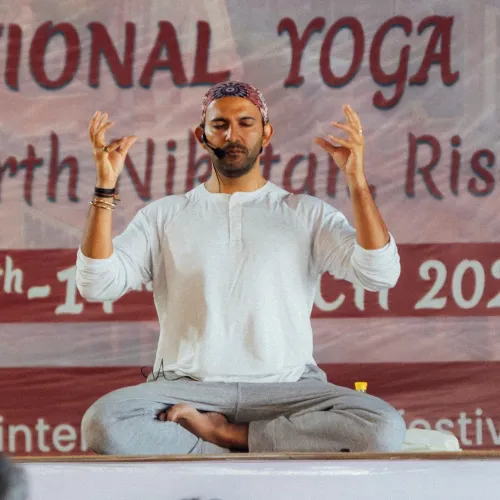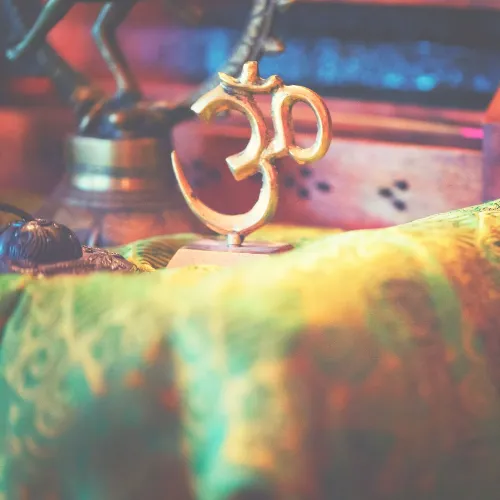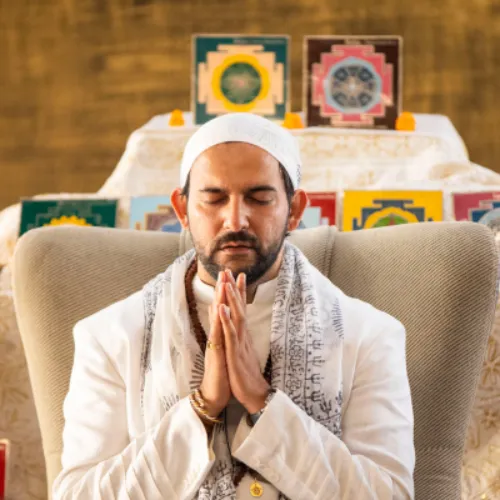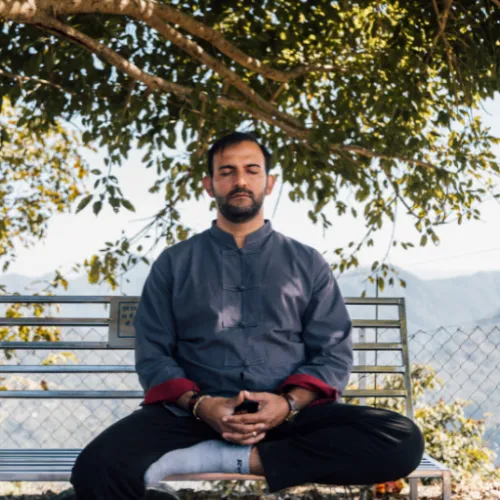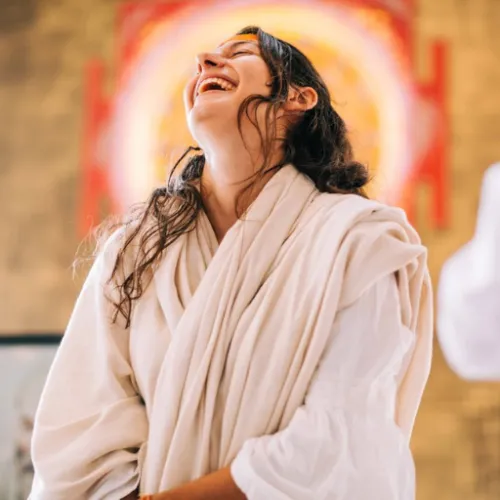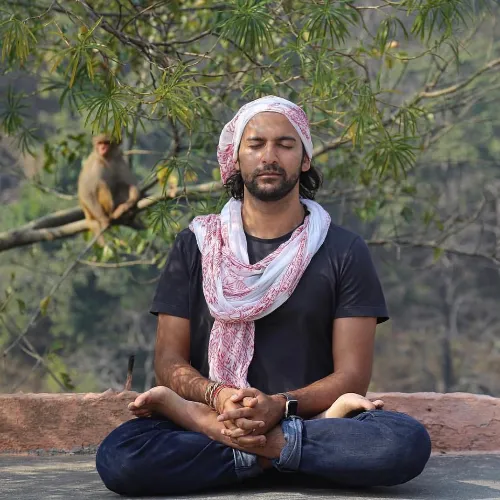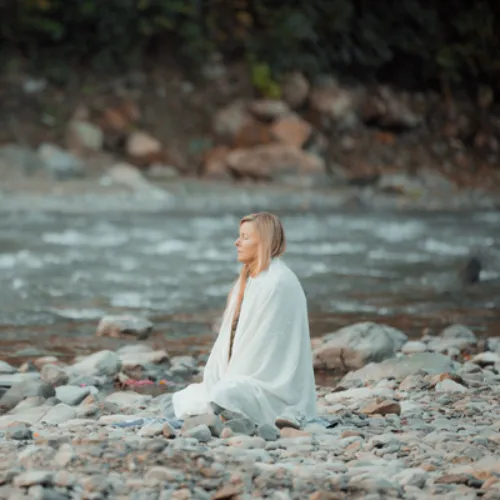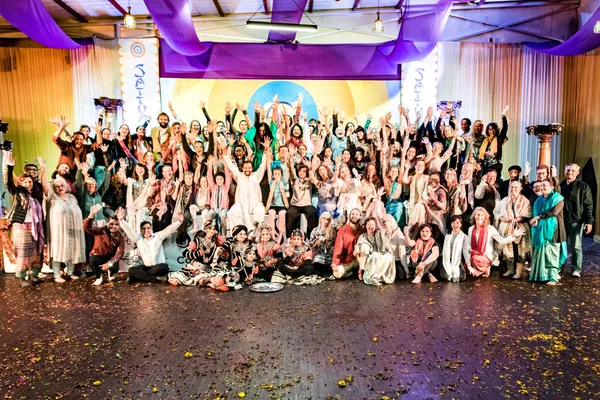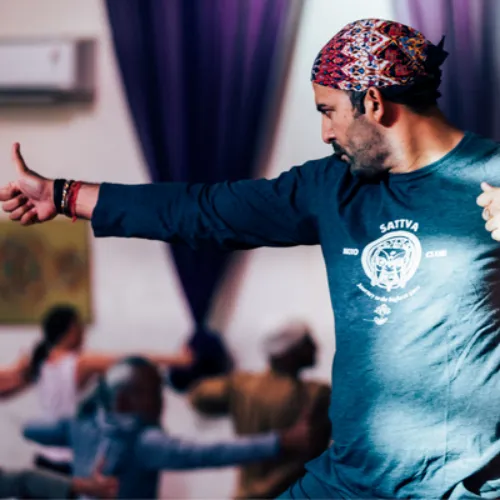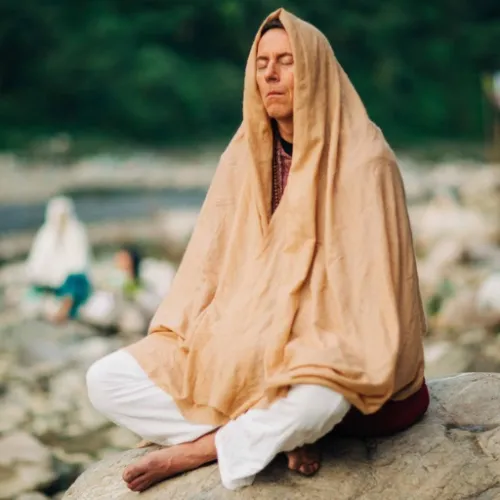

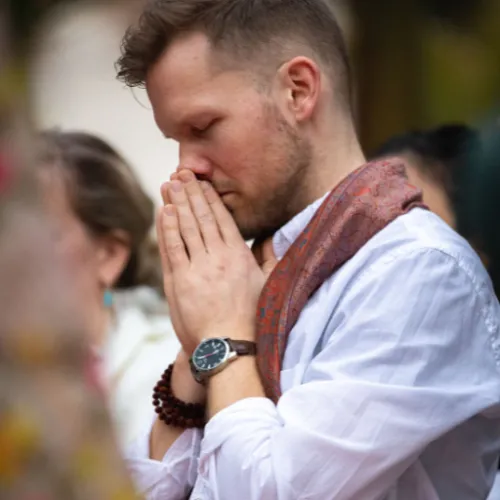
The Bhagavad Gita is the biggest scripture in yoga, the celestial song, taking place on a battlefield.
This world we live in can seem like a battle, but, actually, when you are awake, all you do is sing.
The awakened individual of this age will have this kind of Krishna fragrance, meaning they don’t seek conflict and they do not see conflict as conflict.
All fighting is an illusion. All action is an illusion. The result is already there but action we must take. Without action, you cannot experience it. It will not be real in your own consciousness.
The battle in the Gita symbolizes the inner vrittis, thought, stories of me and mine which feel so real to us, but we have to conquer them, transcend them.
This idea of me and mine is one of the biggest obstacles to your awakening.
For me and mine to be real, there has to be an identification with a very linear timebound entity. “I’m just this.” If I’m just this, then me and mine are causes of stress. Then the gifts in your life become obstacles.
So, the awakening in Dwapara yuga is transcendent of me and mine. If you are coming closer and closer to your awakening, no matter what is happening on the surface, inside there is a song going on, a song which is utterly silent, a song which is deeply moving but it’s a song that is going on.
There’s a spring in your step, not a tenseness in your consciousness. You are not denying life.
A Dwapara yuga person is not bound by any name or label. An individual who is, in this yuga, awake is in all worlds together. He is inside totally detached but outside engaged, celebrating. Inside an absolute state of detachment arises, not from a place of effort but from a place of cognition of truth.
When you cognize truth, when you really see truth, there is a spontaneous, natural letting go of all phenomena, of all ownership, all ideas of getting there and all this psychological fear ends.
Are you aware of the fear which is otherwise always there? This fear of loss, this sense of anxiety which we are trying to supress through different escape mechanisms, looking for security, validation, for anything which can take us away from this fear.
The only thing which can take us away from this fear which is at the core of our violence is the cognition of truth, of the true Self which is always here. Then we begin to realise that there is really nothing to lose here, nothing at all.
We come here absolutely naked and we will leave naked. There is nothing you can lose here, nothing you can gain. It’s all experience. It’s not right or wrong, good or bad, just experience in the Garden of Eden. There is no apple here which is rotten. All apples are delicious but the celebration of the apple can only be experienced by that individual who has seen beyond the illusion, beyond the apparent play of maya. An individual who cannot see beyond maya will be trapped by maya. He will be afraid of maya and then he will fight maya. Maya is the Sanskrit word for this world.
Those who begin with cognition of the reality beyond maya will celebrate this life but those who really don’t see will fight this life.
Fundamentally, the state of the awakened individual is non-seeking, no neediness is there. If this moment is painful or joyous, if this moment looks all made of flowers or thorns, the individual who is in a state of awakening is at ease with it all, equanimous, because he or she is deriving his or her fundamental experience not from the outside, but from the inside, from the source.
Then he or she, of course, will play in the world but not to seek something. And he or she will never deny the world because you realise this is your creation. Why would you deny your own creation?
When you are awake, you cannot but be in love with all of it, the pain and the laughter, the thorns and the flowers, because you realise that they are both creation. But you are not seeking the flower or the thorn. You are celebrating both, yin and yang, the polar opposites, the night and the day, the light and the shadow. You are not denying any of it. You see above all.
You are seeing primarily first that which is beyond all of it. Once you see that, then seeing this is a lot more fun, much more juicy. That’s Krishna! If you look at Krishna, he’s the most flamboyant. That’s the expression of this yuga. Krishna is, ultimately, otherworldly. Even in the battlefields, he is always laughing.
Krishna is supposed to be the master of Dwapara yuga, the yuga we are in. In this age, we have to master a whole other level of intelligence, where the space is becoming smaller and smaller. We are living in a global village where everything is affecting everything. Even our political systems are deeply interwoven. Now, everybody knows everything that is happening everywhere. We are realising that we are actually one whole, that we are not separate. The illusion of separation is a five-sensory play. This is the Dwapara yuga.
Krishna represents the state of consciousness of the awakened person in this yuga.
What Krishna symbolises, in the yogic tradition, is a state of consciousness which will be experienced by an individual who is awakening, who is experiencing higher states of consciousness, enlightenment.
When we say enlightenment, it’s not the end. It’s the beginning of living.
People think as soon as you are enlightened you are done, but no. As long as you are not enlightened, you are done. When you are enlightened, you live. Otherwise, you are just waiting to die and passing the time in the meanwhile.
But once we are tasting enlightenment that fear goes. Then we are not trying to be safe in life and prepare for the future. If this is what you are doing, when will you live?
Krishna lives fully, serves fully. He is engaged in life, yet at the same time disengaged from all of it.
Awakening is a continual process. It’s not a full stop. “I’m awakened. That’s it. I’ve reached a perfected state of consciousness.” That’s all dogma.
You are in this process of awakening and as you progress, you become more and more spontaneous, mysterious, colourful like Krishna.
Colourful means you will begin to experience life in all its grandness, in all its beauty, where even the pain and the obstacle is relevant.
That is the beauty of Krishna. He welcomes it all, even the pain. All the challenges are welcome. He is not bound by feeling.
The awakened individual of this age is drawing his or her primary fundamental experience from Chitta, from the source, from that which is never coming, never going.
Then in the world you are not a manipulator. Otherwise, we are always trying to manipulate. We are always going to a moment to get something out of it. We are meeting people to see what we can get out of them. We reach a moment and we are trying to see what can we get out of the moment. “Am I receiving something, am I getting something?” This is all beggar consciousness.
An awakened individual is not begging from a moment. You are it all.
Krishna consciousness means that, as you go into awakening, you will start experiencing what Krishna symbolises - the joy, that state of love, that point where yin and yang meet, that absolute state of relaxed Being.
Explore the sacred teachings of Bhagavad Gita with Anand Ji on Sattva Connect. May you awaken and continue to awaken, always!
